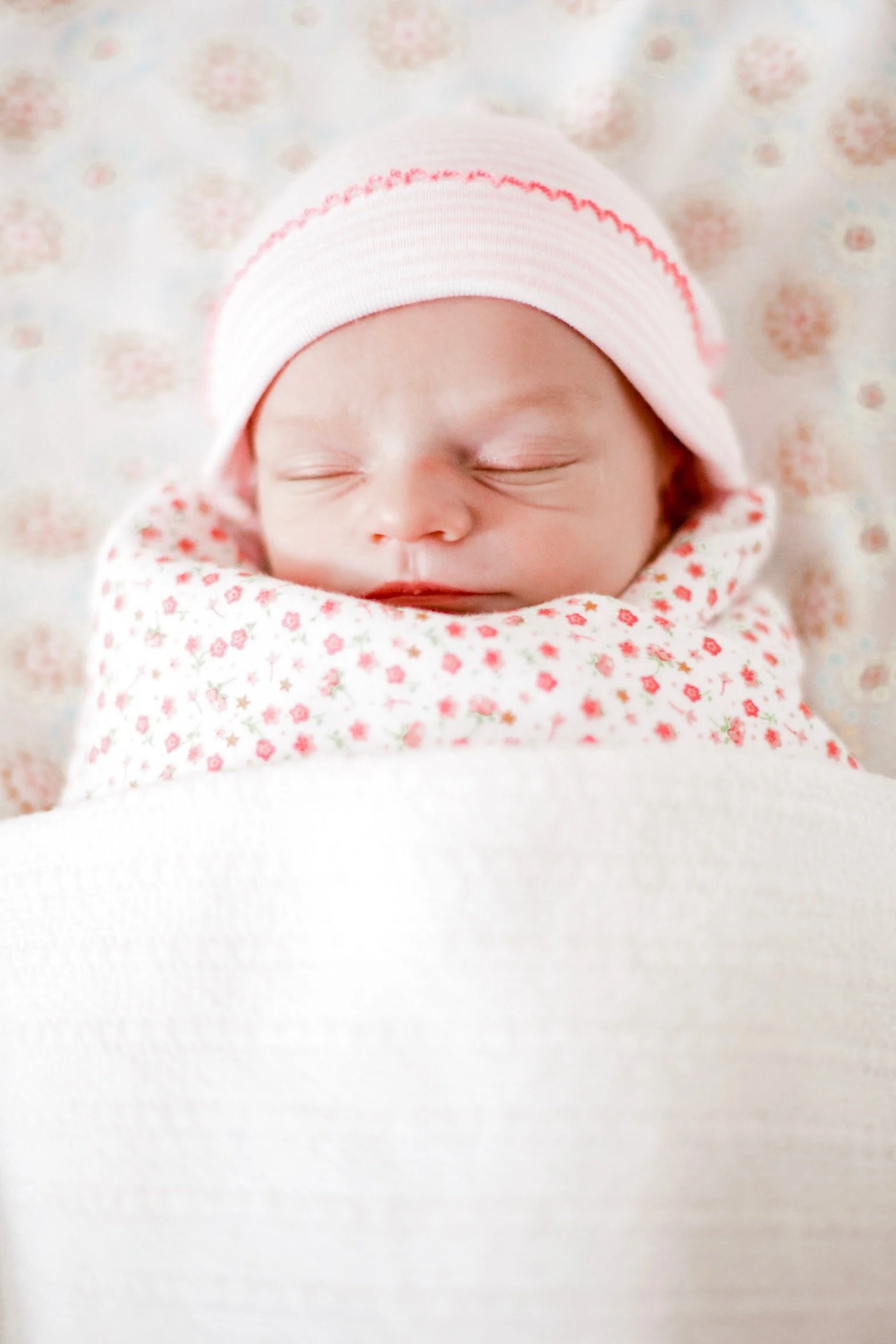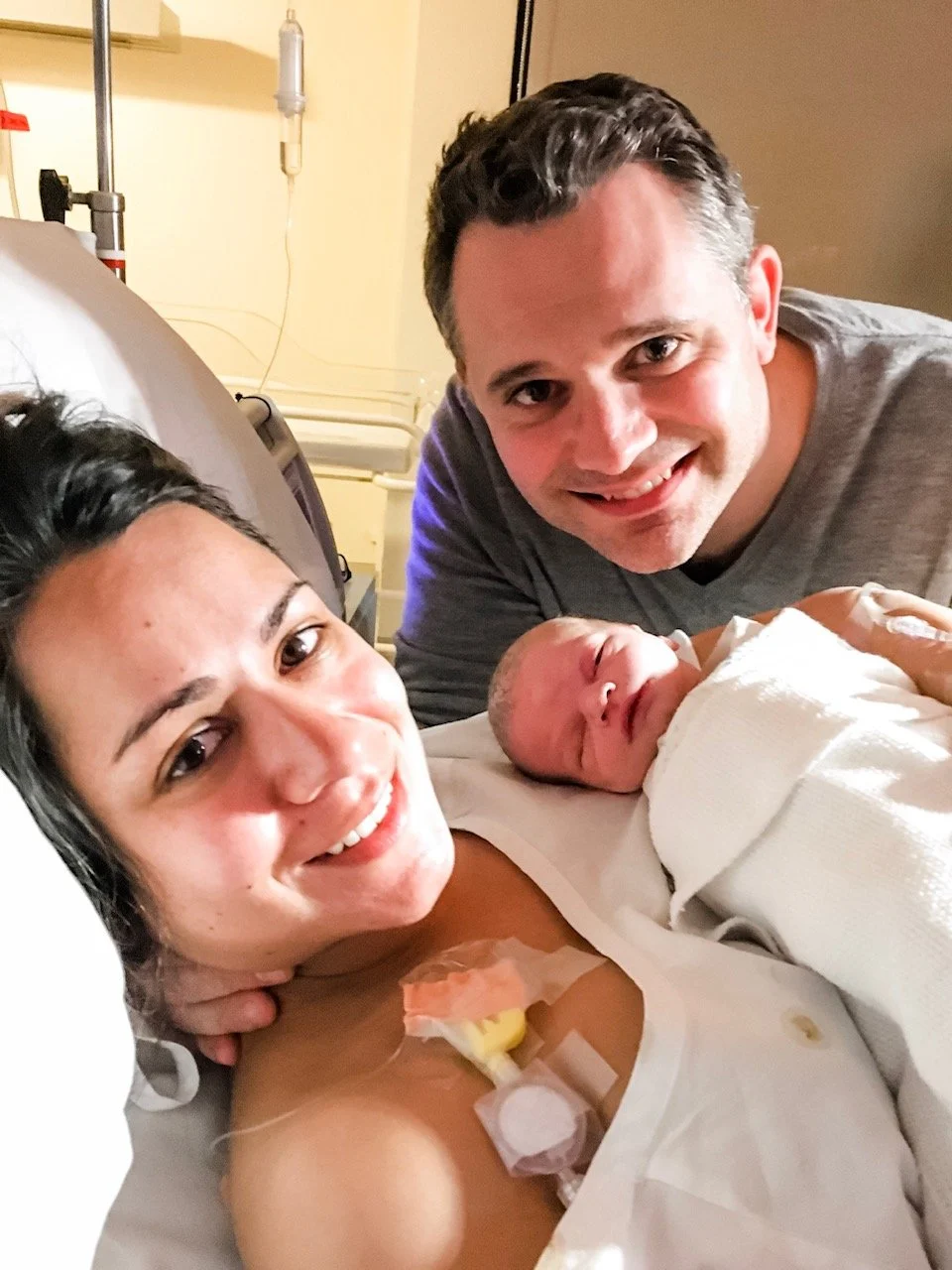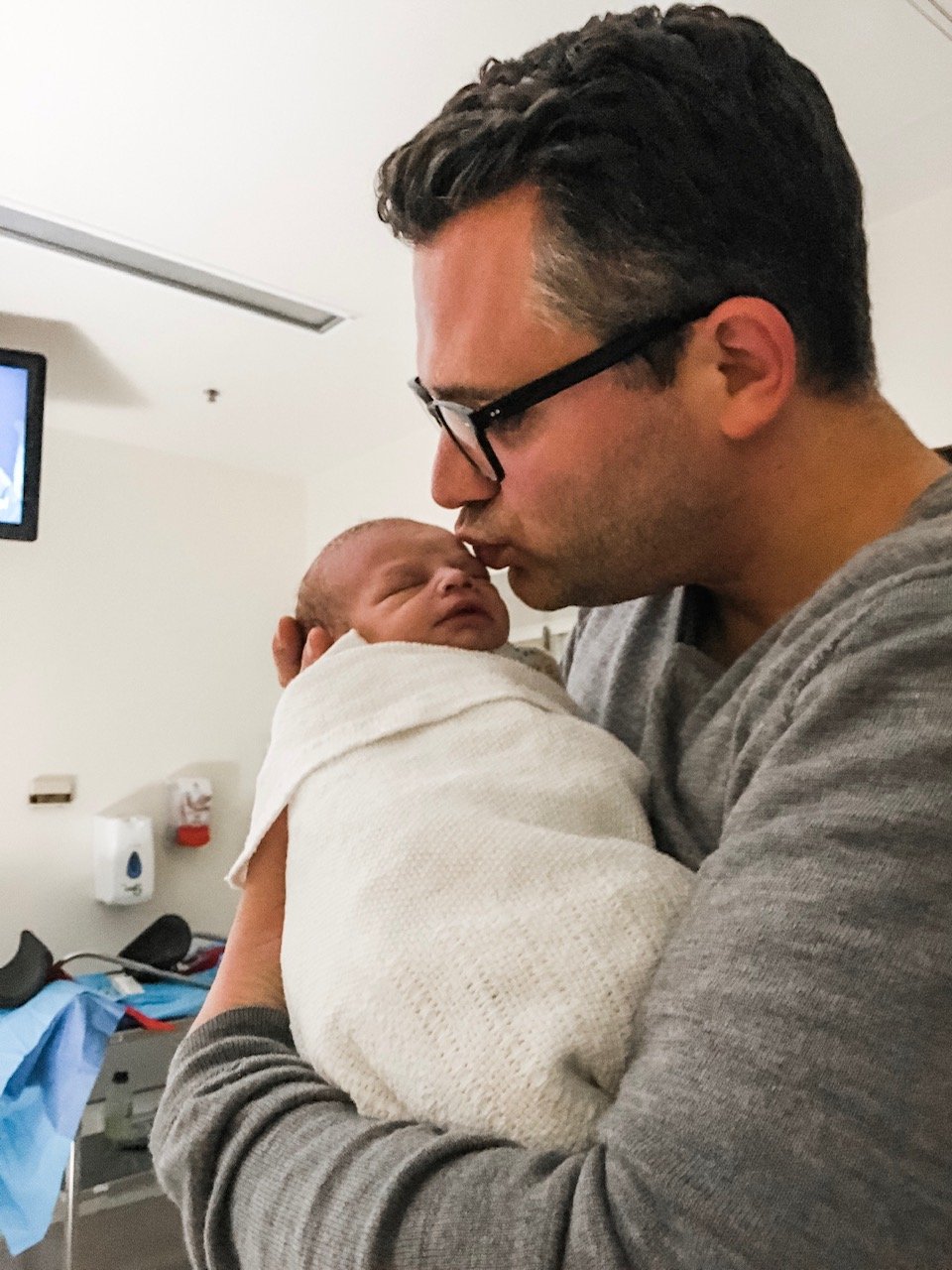Thoughts on the eve of Lily’s 6th Birthday
Does your body start to hurt when you approach a milestone like an anniversary or birthday of a child that has died? Did you know that our cells can hold an imprint of past traumatic events? These imprints can manifest as a physical ache or pain like an early warning sign of a significant date.
Tomorrow is Lily’s 6th birthday. I slept poorly last night and this morning I woke up physically hurting. How can my baby be turning six? What would she look like if she was here? How tall are six-year-olds? What are they into? How different would my life be with a 6-year-old, instead of where I find myself now - pregnant and about to start the newborn phase for the 3rd time?
It has been 5 years and 2 months since Lily died and it still feels bitterly unfair. My daughter is not here. My firstborn. As the sunlight streams in through the window, I lie in the same bed as I did six years ago, thinking of the time leading up to Lily’s birth.
Prior to Lily’s diagnosis, I was an eager first-time mum, with dreams of hypnobirthing and drug-free labour. Everything changed when we were told at 37 weeks that Lily had a catastrophic brain condition. There is no way to sugarcoat it, fear and sadness seeped into everything. Having learnt our baby had a terminal illness, would have severe disabilities, and a malformed brain I was terrified. I did not sign up for this.
All thoughts about birth plans were pushed aside, as we grappled to adjust to a whole new reality. A new universe. One where dreams are shattered and life-altering diagnoses are served up by doctors in white coats. Where words like seizures, epilepsy and disability become part of your vernacular. Where overwhelming sadness at the fate of a much longed-for future sees you clinging to your partner as though you are both drowning. Shoulders shuddering in unison, you sob. Even now I can feel that pain. It is as visceral as it ever was. The feeling of bile rushing up into my throat, vomiting on myself in the car after receiving that terrible news. The trauma. Six years on it still has the capability to transport me back in time.
Diagnosis day. A day many families refer to as ‘D Day’. The day everything changed, the day that marks the separation of our life permanently into ‘before’ and ‘after’. It is a strange thing to be able to clearly pinpoint a moment in time when everything changes. For most people change happens gradually, they adapt through life experiences. What does it mean that a select few step into a portal of instant transformation? Why does it happen? Is there any sense in it? I do not know. I will never understand it.
After receiving Lily’s diagnosis, we waited over a month for her to arrive. I spent my days crying. Crying in the shower, crying on the couch with mum, crying in bed with Will, walking and crying with my friend Claire. So many tears, a lifetime of them. For a break from crying, Will and I would watch Harry Potter on repeat and then cry some more. We knew our baby was going to die, we just didn’t know when, how it would play out or what life was going to be like caring for a child with a disability and a terminal diagnosis. It was like standing on a ledge peering into a chasm of darkness and knowing we were about to be pushed off. Powerless to stop it.
It was a brutal time, the future haunting us. It is only now years later (and with a bucket load of therapy), I can admit that a part of me wanted it all to be over. To be done. If you feel like this or have felt this in a similar situation - I want you to know it is normal. It is a part of what is known as ‘anticipatory grief’. Our non-stop crying about something that hadn’t happened yet was also anticipatory grief.
Back then I didn’t know it had a name, and I felt like a monster for feeling it. I harboured deep guilt that something was wrong with me. Really, I was looking for some semblance of control. I wanted to know what and when, and I wanted to be able to plan and prepare. Everything was so uncertain, from how long Lily would live and what life would be like with a poorly baby.
Mostly I wanted this nightmare to be a mistake. That the doctors had got it wrong, that my baby was healthy, they’d call and explain it was an administrative bungle. I spent hours daydreaming about that phone call.
In those torturous weeks, Will and I did plan for Lily’s birth in our own way. We used the time for extensive consultation with medical experts, geneticists, psychiatrists, paediatricians and palliative care experts. This enabled us to decide to allow Lily to come naturally and in her own time (so long as it was safe). A non-interventionist philosophy became a big part of forming our approach to Lily’s life, as we resolved to make it as least medicalised as it safely could be, embracing the fullness of paediatric palliative care to enable that.
So on 6 November at 42 +++ weeks, we were close to the deadline the doctors would allow me to wait for a natural birth. That morning, I went to see my doctor and she said that the amniotic fluid was lower around the baby. We were at decision time. I asked to go home and come back in the morning.
A change happened over the next few hours. I felt a release, an acceptance. A voice whispering over my shoulder ‘it will be ok’. I don’t know where it came from, but I am convinced that this stimulated a release of oxytocin into my body, triggering labour. That night as we went to bed, I began to feel the small tightenings, which by morning had strengthened into intense surges.
Most women are excited at this point, they know they are one step closer to birthing their baby. To becoming a mother. I was not. I didn’t want labour to happen. I tried to downplay it during that long night, to fool myself that it wasn’t happening. I knew we were about to be dragged further through the doors of our new reality. I wanted to keep Lily safely inside me, and in my heart, I knew I was already her mother.
I laboured at home all morning, with my mum (a retired midwife) and Will my beautiful husband. Torn with the same grief as I, his heart had broken for me and mine for him. The paradox of those few weeks was that the horror we were going through brought our love into intense focus. There is nowhere to hide in your relationship when your world is falling apart. But, we felt only pure love. Nothing else mattered but the three of us. We wanted to protect each other and protect Lily. Love beamed from within, it felt like it had encapsulated us together inside a golden orb. Despite the horror of what was happening nothing could shatter it. In fact, the worse things got, the stronger our little orb became.
To love and be loved like that, I see now as a huge privilege. It created a bond which can never be undone, a sense of perspective for what matters, and a joy in the simplest of moments. For that, we count ourselves as the lucky ones.
As the morning wore on and the surges got more intense, mum said she thought it was time to call the hospital. The Epworth in East Melbourne had been briefed on our situation and told me to come in immediately. We were ushered into a beautiful birth suite with views across the park. My doctor came in and told us we could go out, for a walk in the park, or do whatever felt right. But I didn’t want to leave the 4 walls of the birth suite. I felt safe, cloistered from reality. I wouldn’t leave that hospital floor for another 6 days.
Over the next 8 hours I laboured as any other woman. I tried to use the techniques I had read about before the diagnosis robbed us of preparation time, rocking, moving, and breathing. Minutes seeped into hours, time seemed to stand still. Some personalities really stand out during that time, a lovely encouraging midwife who reminded me of my sister-in-law, an anaesthetist who spoke about different pain options and told me he was waiving his fee, and our neonatologist who would become a constant adviser over the next ten months.
Hours later I was only 2 centimetres dilated. Nothing was happening and I was exhausted. My options were to wait longer or consider an induction. We decided to try it. By this stage, I was beyond denial. I knew the baby had to come and I needed things to get moving. But as the syntocinon kicked in, the pain started to ramp up. I was done.
I had reached a point where I was ready to let go of the last vestige of who I was ‘before’. The aspiring hypnobirthing mummy disappeared, stamped out before her life even began. I was going to have an epidural. We didn’t know what might happen after birth, but we knew I was going to need as much strength as possible. Needed to rest now and prepare, so I could be present after – whether it was a NICU transfer, or the possibility of nursing a dying baby.
An epidural wasn’t how I had imagined things but none of this was. It had ceased to be about me from the moment we received that diagnosis. It was the start of a parenthood journey where we would constantly put baby’s needs first, above our own interests. It was how we would come to weigh and judge every single choice in Lily’s care. ‘Is this what I want or is this what is in Lily’s best interests?’ A line of decision-making that has certainly been hard on us, as we absorbed trauma after trauma to shield Lily. But one which I believe was unwaveringly the right way to make decisions about her life and care.
Ah the drugs. The sweet release gave me everything I needed to rest and prepare. The next few hours passed in a blur, I don’t remember sleeping. At some point, we knew that the baby had passed meconium and this was an indication of distress. Around this time our lovely neonatologist, John joined us, and we went over ‘the plan’. Lily was to be placed on my chest as soon as she was born, there were to be no heroics from the medical team, no whisking her away from us. If she was struggling to breathe we would give her pain relief, but she would remain on my chest, in my arms the entire time.
Let me be very clear – this was a child we were told was unlikely to survive birth and we were 100% certain was terminal. It was imperative to us that we were allowed every second with her rather than precious time being wasted in resuscitation. That might seem hard for some people to comprehend but this is the reality of what we were dealing with.
The silence in the room was deafening. You can’t understand that type of silence until you have experienced it. It was heavy with expectation but devoid of joy. I pushed for 20 minutes – my lovely epidural just strong enough to numb the pain but allowing me full control. Without any assistance, Lily was born into the world at 11:21pm quietly.
She didn’t cry. I didn’t cry. Covered in gunk she was placed into my arms and in shock, I stared at her. I just looked in awe at this tiny little baby. The midwife quietly said ‘congratulations you have had a baby girl’. I started, surprised that she was a girl, at how perfect she looked. Will cradled Lily and me. The air was expectant. We were waiting, just like everyone else in that room. Waiting to see what was going to happen.
Lily’s breathing was very laboured and slow. John gently explained he wasn’t sure if she would survive the night. She snuggled skin to skin, on my chest – and it strikes me now that this was the very same position that she lay on me the day she died. Just ten months later.
With her laboured breathing, her little lungs struggling, she looked with big soulful eyes up at me and her Daddy. An hour trickled past, maybe two, and we lay there with her. Lily didn’t die. Will called our families, and asked my mum to come and meet her granddaughter. At some point he cut the cord, and Lily was cleaned up a little, weighed and dressed.
My memories are fragmented. I remember Will bringing me a cup of tea, hot and laced with sugar. I remember a nurse hand expressing colostrum into a syringe. I remember we exclaimed with delight as Lily was able to swallow it. We had been warned that an NG tube was most likely to be required from birth. But I’d be lying if I said I was flooded with the love hormone – the gushy one that some women experience. It was different, a deeper, more animal-like feeling. I was like a lioness protecting her cub. There was no shininess to it, no pride - it was tribal, instinctive, pure.
It seems odd to me now that we didn’t stay awake all night watching Lily, but the exhaustion of having spent the last 48 hours in labour meant that I couldn’t keep my eyes open. We drifted in and out of sleep, midwives coming and checking on Lily and somehow it was morning. Lily was still alive. In fact, her breathing had improved overnight and we were moved to the maternity ward.
We were grateful to be placed in a room tucked away from the others. The hospital had a night nursery and on the second night with her breathing much improved John encouraged us to let Lily go there while we got some sleep. ‘You will need your strength for what is to come’ he urged.
I stayed in that room for 5 days. I didn’t venture out to any other parts of the ward, I couldn't handle the proud faces of the other parents. Each smile was like a stab to my heart. But over those days we had our own moments of joy. Our girl was alive. She was beautiful. Our families arrived, champagne in hand and determined to celebrate the arrival of the newest member of our family. Their love overflowed to us.
There were many ups and downs. Lily initially failed the hearing test and my heart sank. But my Dad, (an experienced Ear, Nose and Throat Surgeon) told me he thought the test was wrong and had them try it again. This time she passed, Lily could hear. My heart soared. The first time we tried a bottle of expressed milk, was another ‘hold your breath moment’. I will never forget those greedy sucking noises Lily made, as she drank the entire bottle. The nurse looked up at me smiling and said ‘would you like to try to breastfeed her?’
These were the wins, the tiny moments of joy that pushed the shadows away. The doctors were thrilled with Lily’s progress. But I still overheard them talking in the corridor saying ‘it is highly likely this baby is already having seizures.’ But although we were on high alert we didn’t detect any seizure activity. Lily was like a ‘normal’ newborn baby, she slept, she fed, she pooped, and she slept again and in those moments I was able to feel like a ‘normal’ first-time mother, learning the ropes of feeding and nappy changing.
Five days later the unbelievable happened, and we were told we could take Lily home. She didn’t require an NG tube, she didn’t need a NICU, and with much support, she was breastfeeding and being supplemented with a bottle to get her weight up. We were being discharged, and stepping deeper into the unknown – we were taking our baby home.




